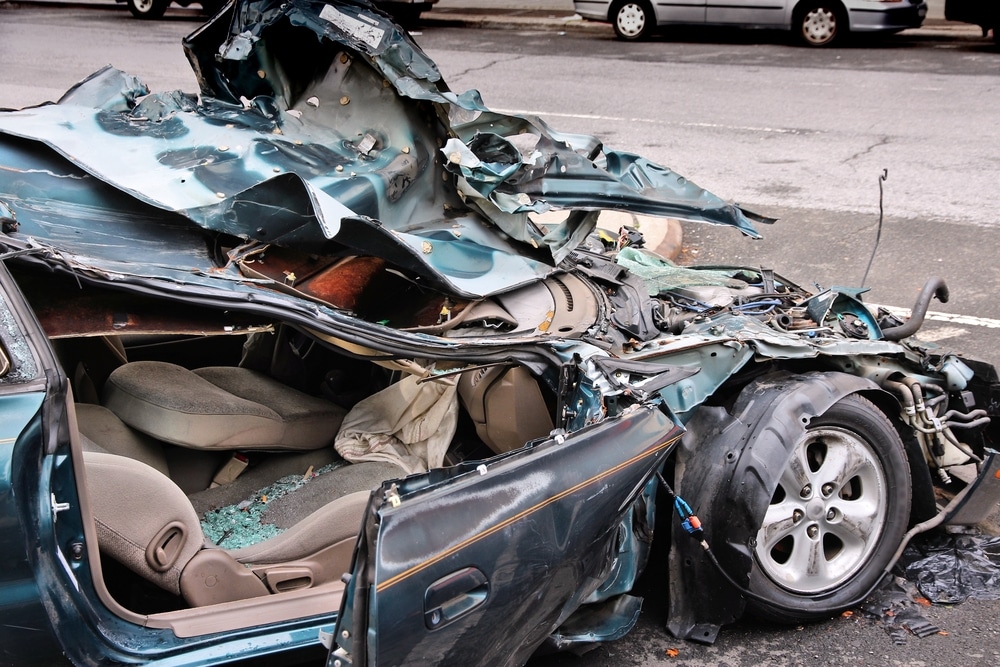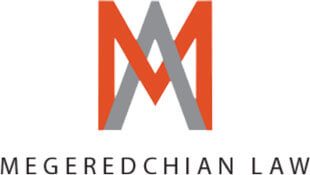
A car accident total loss occurs when a vehicle is damaged so extensively in a crash that repairing it is no longer economically practical. This typically means that the estimated repair costs meet or exceed a legal or insurance threshold based on the car’s actual cash value (ACV)—its fair market value before the accident. In California, insurers may declare a car a total loss in two main ways:
- Repair Cost Threshold: If the repair cost is so high that, when added to the vehicle’s salvage value, the total exceeds the car’s ACV, the car is considered a total loss.
- State-Specific Rules: California law requires insurers to follow the “Total Loss Formula” (TLF). Under this formula, if the cost of repairs plus the salvage value is equal to or greater than the ACV, the vehicle must be declared a total loss.
As of 2025, California still uses this Total Loss Formula rather than a fixed percentage threshold (used in some other states). This means that even if repairs alone are slightly less than the ACV, the car may still be totaled if the combined repair and salvage costs exceed its value.
When a car is declared a total loss, the insurance company will generally pay the policyholder the ACV (minus any deductible), rather than covering the cost of repairs.
While this explains the technical side of how insurers decide when a car is a total loss, the reality for drivers is far more complex. In this article, we break down what really happens behind the scenes, uncover common tactics insurers use, and explain what California drivers need to know in 2025 to protect themselves financially after a serious accident.
If you or a loved one already suffered total loss and need help from experienced car accident lawyers in California, call Megeredchian Law at (866) 359-0807. We offer free consultation and will evaluate your case in five minutes or less.
The Hidden Truth About Car Accident Total Loss
When your vehicle is declared a total loss after a car accident, the insurance company takes control of the process. What most drivers don’t realize is how much of that process is designed to minimize the insurer’s payout. California law sets certain requirements for fairness, but companies rely on formulas, fine print, and pressure tactics that often leave accident victims with less than they deserve.
This guide explains not only how a total loss claim works in California but also the hidden details insurance adjusters rarely tell you.
What Is Considered a Total Loss in a Car Accident?
A car is considered a total loss when the cost to repair it, plus its salvage value, is greater than or equal to the vehicle’s actual cash value (ACV) before the accident.
What they don’t tell you
- No fixed percentage: In California, there isn’t a set threshold like “70% damage = total loss.” Insurers apply the “total loss formula,” which gives them wide discretion.
- Subjective valuations: Adjusters pick the comparable vehicles they use in the calculation. Two different adjusters could produce very different values for the same car.
- Condition undervaluation: Mileage, options, and upgrades are often ignored or undervalued, unless the policyholder pushes back with proof.
How Much Damage Declares a Car a Total Loss?
Insurers often suggest that if repairs approach 75–80% of a car’s market value, it’s automatically a total loss. But that’s an internal guideline, not law.
What they don’t tell you
- Repair shop input matters: Some shops write inflated repair estimates, knowing insurers would rather declare the car totaled. Others lowball repairs to stay in the insurer’s “preferred network.”
- Diminished value is ignored: Even if repairs are possible, insurers don’t factor in the fact that a repaired car with a serious accident history is worth far less in resale.
Car Accident Total Loss Settlements Explained
A settlement should reflect the full pre-accident value of your vehicle. This includes sales tax, registration fees, and any standard dealer charges needed to replace it.
What they don’t tell you
- Deductibles hit hard: Even though the accident wasn’t your fault, your own deductible may still apply if you go through your insurer. You may recover it later from the at-fault driver’s insurance, but only if they accept liability.
- Loan and lease gaps: If you owe more on your car loan or lease than the ACV, you’re on the hook for the difference unless you purchased gap coverage. Insurers rarely remind policyholders of this gap until it’s too late.
- Negotiation is expected: The first offer is rarely the final word. California law allows you to challenge the valuation by presenting your own comparables, receipts for upgrades, and maintenance records.
How Much Does Insurance Pay for a Total Loss Car?
The payment is based on ACV minus your deductible, adjusted for salvage if you keep the car.
What they don’t tell you
- Comparable vehicles aren’t always comparable: Adjusters may use cars from distant markets, with fewer features, or in worse condition to push the value down.
- Extras and modifications are ignored: Custom wheels, upgraded sound systems, or new tires may not be included unless you prove their existence and value.
- Rental coverage ends fast: If you had rental reimbursement coverage, it usually ends as soon as the insurer makes a settlement offer—not when you actually get your replacement car.
Is a Total Loss Car Accident Settlement Taxable?
Generally, California drivers do not pay taxes on compensation for property loss.
What they don’t tell you
- Exceptions exist: If part of the settlement includes lost wages or punitive damages from a lawsuit, portions can be taxable. Insurers don’t spell this out because they’re focused on closing claims, not protecting you from IRS surprises.
- Record keeping matters: Without receipts or proof of prior deductions, you may not be able to defend your position if audited.
What to Do After a Car Accident Total Loss
When your vehicle is totaled, you face more than just paperwork — you face a system tilted in favor of insurers.
Steps insurers won’t highlight
- Demand the valuation report in writing. Compare the vehicles listed with real local listings.
- Document every upgrade and repair. Even new tires or a recently replaced transmission can significantly raise ACV if you provide proof.
- Push for taxes and fees. California requires that settlements include sales tax, registration, and transfer fees, but adjusters often “forget.”
- Negotiate like it’s expected. Many policyholders take the first offer, but insurers are prepared for pushback.
Can You Keep Driving After a Total Loss?
You can keep your vehicle, but it will be issued a salvage title. To make it legal to drive again, you must repair it and pass a state inspection before applying for a “rebuilt” title.
What they don’t tell you
- The salvage value is deducted. Your payout will be reduced by the estimated salvage value, often thousands of dollars.
- Insurance becomes difficult. Many companies will only offer liability coverage on rebuilt title vehicles, not full coverage.
- Resale value plummets. Even if repaired, the car will typically lose 60–70% of its pre-accident resale value.
Handle a Car Accident Total Loss Claim With Pros
Insurance adjusters are trained to minimize payouts. California law gives you the right to fair compensation, but only if you know what to ask for:
- Challenge undervalued comparables.
- Demand all fees and taxes be included.
- Provide evidence of upgrades and conditions.
- Don’t accept the first offer.
The process is designed to favor insurers, not drivers. The more prepared you are, the closer you’ll get to the settlement you truly deserve. That preparation often includes having a skilled, experienced, aggressive car accident attorney on your side. At Megeredchian Law, we know how to face insurance companies and fight for every penny that is owed to you. Don’t settle for less than you deserve. Schedule a free, confidential consultation at (866) 359-0807.

 Call Us:
Call Us: 